Owning a campervan offers the freedom to travel with the comforts of home, but like any home (albeit on wheels), campervans come with their own unique set of challenges. These range from minor inconveniences like a flat tyre to more complex issues like electrical or mechanical malfunctions. Whether you are a seasoned campervan owner or just starting your #vanlife journey, being aware of the common problems that can arise will help you stay prepared and ensure that your trips go as smoothly as possible. Below, we outline some of the most frequent campervan issues, from electrical faults to mechanical troubles.
This section will have guides on each of these so please do bookmark the page (here: Campervanman Campervan Guides) and check back when you can
1. Electrical Issues
Electrical systems in campervans power everything from lights and kitchen appliances to entertainment systems and climate control. These systems often consist of multiple components, including the leisure battery, alternator, solar panels, and shore power hookups. Common electrical issues include battery drain, blown fuses, and malfunctioning devices such as inverters.
Many electrical problems can stem from faulty wiring, poor connections, or aging components. Regularly checking your campervan’s electrical system and keeping an eye on warning signs like flickering lights or dead outlets can help you catch issues early. A basic understanding of how your campervan’s electrical setup works, as well as carrying spare fuses and a multimeter, can save you from getting stuck without power in remote locations.
- Here’s a guide to getting started with electrical systems
- Here’s a video guide of an electrical system build (2nd fix)
- More follow
2. Flat Tyre
A flat tyre is a common and inconvenient issue, especially if it happens when you’re far from civilisation. Whether it’s due to a puncture, low tyre pressure, or simply worn-out tyres, having a flat can halt your journey until it’s fixed. Given the added weight of a fully-loaded campervan, maintaining proper tyre pressure is critical to avoid flats or blowouts.
To minimise the chances of a flat tyre, regularly inspect your tyres for signs of wear and ensure they are properly inflated. It’s essential to carry a spare tyre, a jack, and the necessary tools to change a tyre, as well as knowing how to do it yourself in case of an emergency. In advanced set ups it’s not uncommon to carry 2 spares, or at least an extra spare tyre. Run flats are also sometimes an option.
3. Heating, Ventilation, and Air Conditioning (HVAC)
Heating, ventilation, and air conditioning are crucial for maintaining a comfortable living environment inside your campervan, especially when traveling through different climates. Problems with the HVAC system can arise from a number of sources, such as lack of power or fuel, blocked pipes or vents, or faulty components. Heating issues can make winter trips unbearable, while faulty air conditioning can make summer journeys uncomfortable.
To keep your HVAC system running smoothly, perform regular maintenance by cleaning filters, checking for blockages, and inspecting the system for any unusual noises or malfunctions. Addressing small issues early on can prevent more significant failures down the road, and consider back up systems like our big-brother overlanders do.
- Here’s a video guide of my install of the combination heater in my current Sprinter conversion
- Here’s a video guide of me fitting underfloor heating in Walt
4. Leaking Roof
Roof leaks can cause serious damage to your campervan if not addressed promptly. Water entering through a leaking roof can lead to mold growth, damage to the interior, and even structural problems. Leaks often occur due to deteriorating seals around roof vents, solar panel mounts, or other rooftop attachments.
Inspect your roof regularly for signs of cracks, worn seals, or damage. Catching leaks early can prevent costly repairs. If you notice damp spots, water stains, or mould inside your van, it’s important to find the source of the leak and fix it immediately.
5. Battery Failure
Campervans typically rely on two batteries: a starter battery for the engine and a leisure battery for appliances. Battery failure is a common issue, especially if the batteries are old or not charged properly. If your leisure battery fails, you might find yourself without power for essential systems like lights, refrigerators, and heating.
Regularly testing your batteries and keeping an eye on their charge levels will help you avoid getting stranded. Having the ability to isolate the leisure system is key. Charging systems like alternators and solar panels should also be checked periodically to ensure they’re working properly. If your batteries are no longer holding a charge, it may be time to replace them.
6. Rust
Rust is a slow but persistent problem for campervans, especially those exposed to moisture and salt on the roads. It not only affects the appearance of your van but can also compromise its structural integrity over time. Rust commonly forms on the underbody, around the wheel wells, and near window or door seals.
To prevent rust, regularly clean your campervan, especially the undercarriage, and apply protective coatings if needed. If you spot rust, treat it as soon as possible to stop it from spreading. Ignoring rust can lead to more serious issues that are expensive to repair.
Here’s a video guide of how I tackled the rust on Walt
7. Sagging Rear Suspension
The rear suspension of a campervan can begin to sag over time, particularly if the van is consistently loaded with heavy gear. This can affect your vehicle’s handling, especially on rough or uneven roads, making the ride uncomfortable and less safe.
Regularly inspecting your suspension system and ensuring that it’s up to the job of supporting the weight of your campervan is important. Solutions might include upgrading the suspension system with stronger springs or even installing air suspension to handle heavier loads.
8. Brake Problems
Your campervan’s brake system is one of the most critical components for your safety. Problems can arise from worn brake pads, leaking brake fluid, or issues with the brake lines. These issues can lead to reduced braking performance, which is particularly dangerous in a vehicle as heavy as a campervan.
To ensure your brakes are in good condition, perform regular checks of your brake pads, fluid levels, and overall system. Listen for squeaking or grinding noises when braking, as these could be early signs of worn-out components. If you notice any issues, it’s important to address them immediately.
9. Failing Electrical Components
Beyond the main electrical system, various smaller electrical components in a campervan can fail over time. This can include everything from window switches and lights to wiper motors and door locks. These smaller issues might seem minor but can still cause inconvenience.
Having a basic toolkit and spare parts on hand can help you replace small electrical components when they fail. Regularly inspecting these parts for wear or malfunction can help you avoid getting caught out, and it’s nice to also be able to monitor the separate power-hungry components in your system too if you can. I use 30a shunts from BatMon to do this.
10. Spare Parts Supply
Finding the right spare parts for your campervan, especially if it’s an older or rare model, can be a challenge. Whether it’s engine components, electrical parts, or interior fixtures, delays in finding parts can keep your campervan out of action for longer than you’d like.
To avoid being stranded, try to carry essential spare parts such as fuses, light bulbs, and hoses. Having a network of suppliers or knowing where to source parts for your specific van model will help you get back on the road quickly if a component fails.
11. Storage Tank Issues
Campervans often have multiple water storage tanks, including fresh water, grey water, and black water (for waste). Problems with these tanks can include leaks, clogs, or improper drainage, which can cause messes and bad odors inside the van.
Regularly emptying and cleaning your tanks can help prevent blockages and ensure they function properly. If you notice leaks or slow drainage, it’s essential to investigate and repair the issue to avoid further complications.
12. Toilet Issues
Campervan toilets are a convenience, but they can present problems if not properly maintained. Common issues include blockages, leaks, or unpleasant odours. Failing to keep the toilet and waste system in good condition can lead to unpleasant surprises on your trip.
Regular cleaning and the use of proper chemicals can help keep your campervan toilet functioning correctly. If you notice any problems, such as slow draining or leaks, addressing them early will keep your van sanitary and comfortable.
13. Leak Repairs
Leaks can occur in various places around a campervan, from windows and doors to plumbing fixtures. Left unchecked, leaks can cause significant damage to both the interior and exterior of the vehicle, leading to mold, rot, or electrical issues.
Regularly inspecting seals, joints, and plumbing connections will help you catch leaks early. Addressing them promptly will help keep your campervan dry and safe from further damage.
14. Water Pump Issues
The water pump is responsible for supplying water to your campervan’s taps and showers. When it malfunctions, you may find yourself without running water. Common problems include clogged filters, faulty wiring, or broken pressure switches.
If your water pump stops working, checking the electrical connections and ensuring the filter is clean can often resolve the issue. If the pump itself is faulty, replacing it with a new one is a straightforward fix.
15. Mechanical Problems
Like any vehicle, campervans can experience mechanical problems, including engine troubles, transmission issues, or worn-out components like belts and hoses. Regular maintenance is key to avoiding breakdowns, but even well-maintained vehicles can run into mechanical issues after years of use.
Keeping your van on a regular service schedule and paying attention to warning signs, such as unusual noises or reduced performance, can help prevent mechanical problems from becoming major repairs. Being familiar with your van’s mechanical systems will also help you handle minor repairs on your own.
Owning a campervan brings freedom and adventure, but it also requires regular maintenance and awareness of potential issues. By understanding these common campervan problems, you can stay prepared and keep your vehicle in top condition for your next journey.





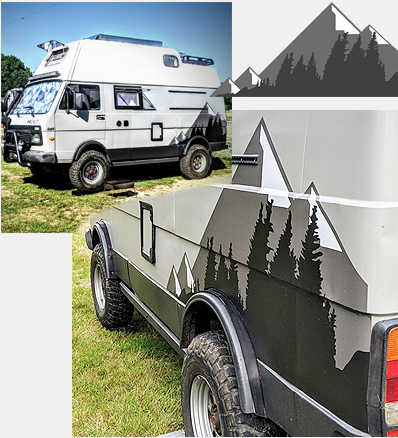
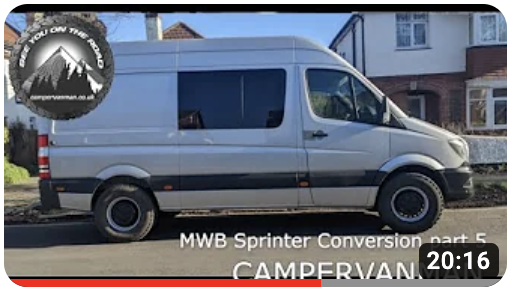
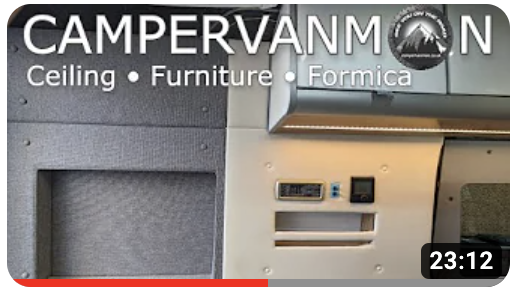
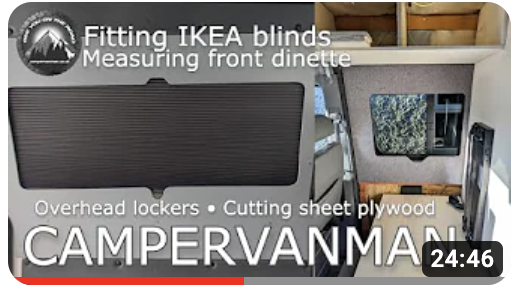



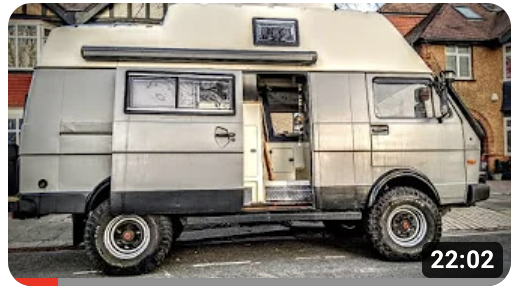


Recent Comments